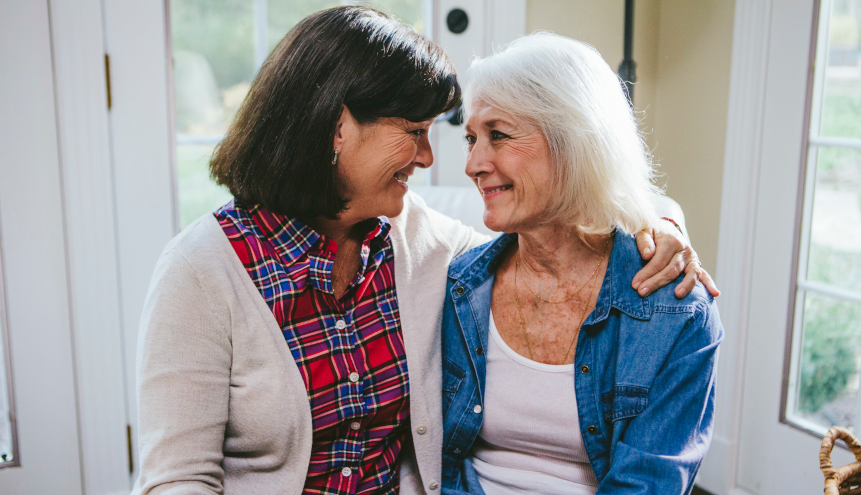
Join Our Community of Monthly Supporters to Fight Alzheimer's Disease All Year Long
Join Our Community of Monthly Supporters to Fight Alzheimer's Disease All Year Long
Help provide care and support for millions affected by Alzheimer's and advance research to bring us closer to a cure all year long with a monthly gift.
Give MonthlyLiving Well After the Diagnosis
January 31, 2025 | 9:30 a.m. - January 31, 2025 | 12 p.m.
Presented virtually via Zoom
Hosted by the New England Chapters:
CT, MA/NH, ME, RI, VT
Living Well After the Diagnosis
Designed for individuals living with early-stage dementia and their care partners.Overview
- 9:30 - 10:30 AM: Welcoming Remarks & Early stage panel: click here to access the recording
- 10:30 - 10:45 AM: Break
- 10:45 AM - 12:00 PM: Living Well with Cognitive Challenges: Tips and Strategies Presented by Dr. Julie Brody-Magid: click here to access the recording
Featured Presenter
 Julie Brody Magid, PsyD, is the clinical director of McLean Hospital’s Memory Disorders Assessment Clinic in the Division of Geriatric Psychiatry. She oversees clinic operations and conducts comprehensive neuropsychological evaluations with older adult patients who are referred for memory disorders and other cognitive problems. Dr. Brody Magid specializes in providing neurocognitive and psychodiagnostic evaluation and treatment for patients with traumatic/acquired brain injury, dementia, movement disorders, and neuropsychiatric illnesses.
Julie Brody Magid, PsyD, is the clinical director of McLean Hospital’s Memory Disorders Assessment Clinic in the Division of Geriatric Psychiatry. She oversees clinic operations and conducts comprehensive neuropsychological evaluations with older adult patients who are referred for memory disorders and other cognitive problems. Dr. Brody Magid specializes in providing neurocognitive and psychodiagnostic evaluation and treatment for patients with traumatic/acquired brain injury, dementia, movement disorders, and neuropsychiatric illnesses.
Presentations
9:30 - 10:30 AM: Opening Remarks & Keynote, Living Well: Panel of Individuals Living with Dementia, Presented by Meghan Lemay, MS, and PanelistsThis session will highlight what it is like to live with Alzheimer's disease and other dementia. Panelists will discuss coping with the diagnosis and combating the stigma associated with the disease. They will also talk about the importance of disease education, social engagement, and having a voice in your own care.
Click here to access the recording.
10:30 - 10:45 AM: Break
10:45 AM - 12:00 PM: Living Well with Cognitive Challenges: Tips and Strategies, Presented by Julie Brody Magid, PysD
Establishing a more simplified routine and schedule can be helpful and affect one’s well-being. This session will review cognitive strategies to help manage common difficulties encountered in daily life with the goal of improving feelings of well-being and self-reliance. Specifically it will focus on how to develop a person-centered roadmap to optimize meaning, structure and appropriate levels of stimulation.
Click here to access the recording.
Sponsors


For more information about this event, contact lkermond@alz.org


